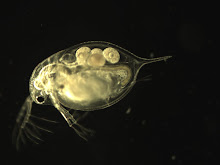The Bush administration has only protected 58 species of plants, animals, and fish to date, compared to 522 species protected during the Clinton administration and 231 during the elder Bush’s tenure. Under this administration, the Fish and Wildlife Service has not protected a single U.S. species in 712 days. This is by far the longest period without a new species being protected since the landmark federal law was passed, surpassing even James Watt, who, under President Reagan, in 1981 and 1982 went 382 days without listing a species.
“The Bush administration denied coastal cutthroat trout protection not because the species doesn’t need to be protected, but because of hostility to the Endangered Species Act,” said Greenwald. “Decisions about how to protect our rivers and fish need to be based on science, not politics.”
That last point is so important. As a scientist, especially as an ecologist, I find it so frustrating when careful, high-quality, often expensive science is simply brushed aside because it doesn't fit someone's narrow-minded agenda. But I also understand that some of the blame falls on us - our inability to effectively communicate science and the implications of our results to policy makers and voters. Some people just don't understand how important it is to preserve biodiversity and understand our natural resources. Some things can't be replaced, but it's difficult to convince someone of that who only ventures outside their air-conditioned office for a round of golf or something. How do we get people like that to care about bacteria in the ocean sediments off the Bahamas, for example? Or more importantly, get them to appreciate the ecological connections between those bacteria and the rest of the ecosystem? Something to think about on Endangered Species Day!
No comments:
Post a Comment